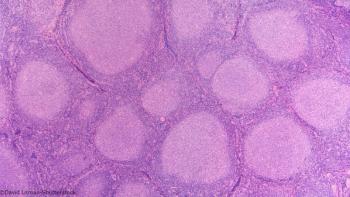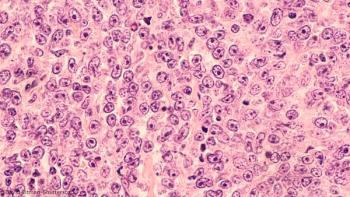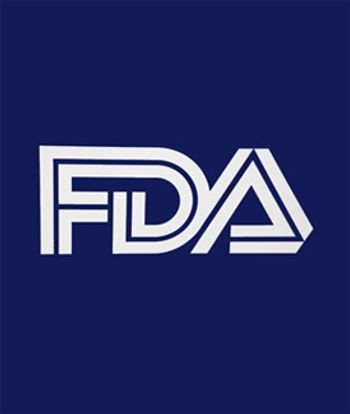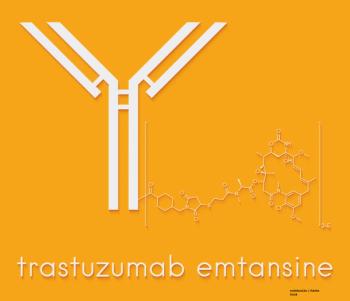
TROG 99.03 constitutes “the only high level evidence currently available to guide decision making for this group of patients,” says investigator Michael MacManus.

Your AI-Trained Oncology Knowledge Connection!


TROG 99.03 constitutes “the only high level evidence currently available to guide decision making for this group of patients,” says investigator Michael MacManus.

Three and 6 months after undergoing the psychotherapeutic intervention Managing Cancer and Living Meaningfully (CALM), participants reported less-severe depressive symptoms.

A team from Children’s Healthcare of Atlanta reports unexpected factors determining which adolescents participated in sperm banking.

The OS benefit associated with standard treatment diminished in patients older than 80 with high comorbidity scores, but other age groups fared better.

While over half of survivors had heard of metabolic syndrome, in one-third with the condition, fewer than 10% had been diagnosed; educational strategies may be of benefit.

A small study has found that men with cancer were less likely than women to prefer palliative care if informed that continued treatment would not be helpful.

Findings from the MCC-Spain study suggest that in some cases, CLL could be prevented by modifying dietary habits.

Most CLL patients treated with FCR will experience long-term remissions, but patients who relapse within 24 months have a dismal prognosis.

A 13% absolute increase in the radiographic response rate occurred in regorafenib-treated patients. Survival increases were not statistically significant.

For each 25 nmol/L increment of circulating vitamin D, colorectal cancer risk was 19% lower in women and 7% lower in men.

In the DAWN trial, however, investigators said, “some patients experienced prolonged remission durations and symptom relief with no new safety signals.”

AEs were more common in patients assigned to obinutuzumab compared with rituximab; however, baseline characteristics differed between treatment arms.

This is the first diagnostic classification of RCCs in patients younger than age 30 prospectively registered in a cooperative group clinical study.

Overall response was strong even in high-risk patients (over age 65, with 17p deletion, with prior ibrutinib therapy, and mutations of BTK and PLCγ2).

FDA warns, however, about the possibility of TLS due to rapid tumor cell destruction.

In SPCG-13, adjuvant docetaxel without prednisone did not impact biochemical DFS in intermediate- or high-risk disease treated with radical RT with ADT.

OS with the PSA-targeted, poxvirus-based cancer vaccine was no better than placebo, and increased survival was attributed to better standard of care.

CAR T-cell therapy with bb2121 induced deep, long-lasting responses in patients with heavily pretreated MM.

In the ADORE trial, adjuvant FOLFOX in postoperative yp stage III rectal cancer significantly improved disease-free survival.

In the PROPHECY study, men with mCRPC and AR-V7–positive CTCs had only a 0% to 11% probability of benefit from abiraterone or enzalutamide.

In AFT-30, increased frequency of PSA screening for localized prostate cancer did not boost survival, regardless of primary treatment or disease risk.

In MMY1001, median PFS was 14.1 months and median OS was 21.1 months in patients with lenalidomide-refractory myeloma treated with daratumumab/carfilzomib.

In the Abi Race study, response to abiraterone was greater and longer lasting in black men with prostate cancer, compared with white men.

The presence of MSI-high was predictive of Lynch syndrome, which was found to be associated with a much wider spectrum of cancers than previously thought.

Despite paying nearly double per month for first-line treatment in the US, patients with mCRC have survival outcomes similar to their Canadian counterparts.

A once-weekly regimen of carfilzomib plus dexamethasone improved response and delayed progression better than a twice-weekly regimen in R/R MM.

OPTIMISMM is the only phase III trial to show a significant PFS benefit in R/R MM patients with prior exposure to lenalidomide.

A pooled analysis including data from over 8,000 men showed survival outcomes were better for black men, after adjusting for prognostic variables.

Women with HER2-positive early breast cancer achieved similar disease-free survival with 6 months of adjuvant trastuzumab compared with a 12-month duration, according to the phase III PERSEPHONE trial.

While HCT is an important benefit for FL patients, the optimal approach remains up for debate.